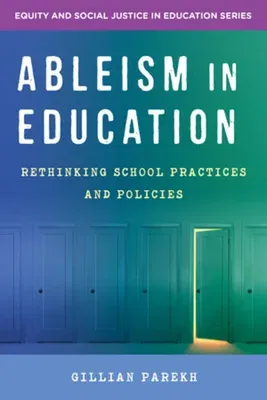Gillian Parekh
(Author)Ableism in Education: Rethinking School Practices and PoliciesPaperback, 10 May 2022

Qty
1
Turbo
Ships in 2 - 3 days
Only 5 left
Free Delivery
Cash on Delivery
15 Days
Free Returns
Secure Checkout

Part of Series
Equity and Social Justice in Education
Print Length
208 pages
Language
English
Publisher
W. W. Norton & Company
Date Published
10 May 2022
ISBN-10
1324016795
ISBN-13
9781324016793
Description
Product Details
Author:
Book Format:
Paperback
Country of Origin:
US
Date Published:
10 May 2022
Dimensions:
22.1 x
14.48 x
1.78 cm
ISBN-10:
1324016795
ISBN-13:
9781324016793
Language:
English
Pages:
208
Publisher:
Weight:
322.05 gm